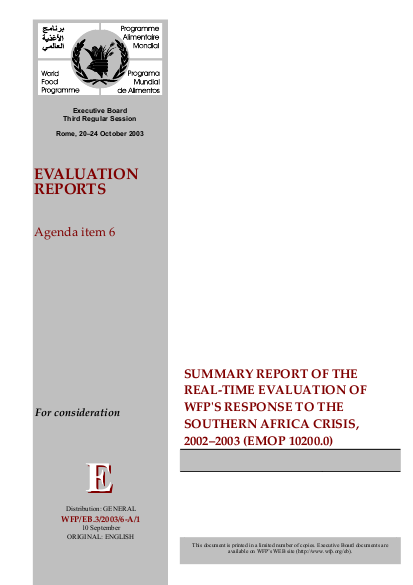
The regional emergency operation for the Southern Africa Crisis Response1 provided a cohesive response to a food crisis resulting from a combination of drought, economic decline, rising HIV/AIDS prevalence and governance problems. Initial responses to famine in Malawi in early 2002 were inadequate, but the scaling-up of WFP’s operations from July of that year coincided with the establishment of a regional management and logistics system; a full regional bureau was set up in October. The regional team responded well to the exceptional circumstances relating to genetically modified organisms, unprecedented levels of local procurement, the need to mill large quantities of maize and new HIV/AIDS challenges.
